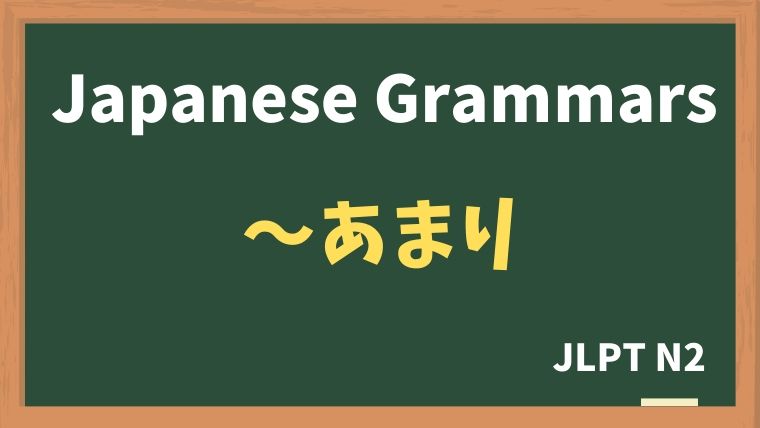
Explanation:〜あまり
fa-check-circleMeaning
"〜すぎて"
程度がすごいことを表す
"because the degree is too high, ended up..."
Used to indicate that something happens to an excessive degree, leading to an unintended or extreme consequence. It conveys that the intensity or excessiveness of a feeling, emotion, or state has caused an unexpected result.
fa-check-circleForm
V(plain form but affirmative form only) + あまり
イA(plain form but affirmative form only) + あまり
ナAな + あまり
Nの + あまり
fa-check-circlePoints
- Expresses Excess: "〜あまり" emphasizes that something is done or felt excessively, to the point that it leads to an extreme or unexpected outcome.
- Used with Emotions or States: This expression is often used with emotions, feelings, or states (e.g., excitement, sadness, nervousness) to show that the intensity of these emotions leads to a significant result.
- Negative Consequences: The result that follows "〜あまり" is often a negative or unintended consequence due to the excess.
fa-check-circleJLPT Level
N2
Sample sentenes
緊張のあまり、上手にスピーチできなかった。
Due to nervousness, I couldn't deliver my speech well.
日本に来たばかりのころは、寂しさのあまり毎日国の家族と電話したものだ。
When I first came to Japan, I used to call my family back home every day out of loneliness.
読解問題は考えすぎたあまり、時間が足りず、最後まで解けなかった。
I overthought the reading comprehension questions, ran out of time, and couldn't finish the exam.
JLPT N2に合格できて、嬉しさのあまり泣いてしまった。
I was so happy to pass the JLPT N2 that I burst into tears.
急いでいたあまり、家にレポートを忘れてしまった。
I was in such a hurry that I forgot my report at home.
Vocabulary
| Japanese |
English | |
| 寂しさ | さびしさ | loneliness |
| 読解 | どっかい | reading comprehension |






